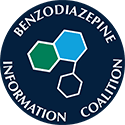No I think this gets into the point of are we selling cognitive enhancement with stimulants or treating a illness causing actual significant impairment. Seriously, I'd be pretty hard pressed saying that giving someone Concerta to get them from a B to an A in their college classes is "appropriately diagnosing ADHD".
Who said you should do that? I definitely didn't. The ADHD kid making B's and C's in grade school, probably with mom and dad's help, is likely flunking out of college or struggling way more than getting B's. It is not cognitive enhancement if the person really has the disorder. It's treating an illness, the result of which is likely better performance.
This is the same language that the "ADHD centers" use....everyone has ADHD and everyone could use a little cognitive enhancement.
What language? What are you talking about?
I mean yeah, sure, in the same way I could probably use a nose job or liposuction cause I suffer from an "attractiveness deficiency", I think a lot of this really comes down to your philosophical stance on this issue.
No it comes from the evidence supporting it. I was like most of the posters on this thread when I entered residency because med school drilled it in my head that while stimulants are the treatment for ADHD, it's bad and harmful and people abuse it and divert it and besides, there's no such thing as someone with ADHD not diagnosed in childhood. It didn't help that my psych preceptor used to say if they're not on meds by high school, they don't have ADHD. Then I got to residency and learned the science thanks to attendings who encouraged us to read and discuss. We had a strong addiction program so we were taught a lot about appropriate diagnosis and treatment and they wanted to make sure we were comfortable enough that we weren't giving out stimulants to everyone and at the same time, that we weren't with holding care because of our own biases, prejudices and fears.
My philosophical stance is generally I need to see real evidence backed up by collateral sources of significant impairment from a disorder I'm going to treat with a controlled medication I know has a high risk for diversion and high street value in the young adult population.
Even Seroquel has street value.
Proper workup is very important and collateral is fine. But it's my opinion that requiring someone to find someone who know them 20 or 30 years ago to reflect on their behavior is stupid. If parents are still in their lives and patient is willing I think that's fine. But parents aren't always around and patients don't always have great relationships with them. The evidence I use is scales, history and sometimes, neuropsych testing if necessary. I rule out everything else of course. If collateral is available, even better but I don't punish the patient because there's no one who can vouch for their daydreaming 30 years ago. Collateral also doesn't tell you much in most cases. In cases where someone took note, mom or dad can tell you that Joey was running around the classroom. But in those cases, the diagnosis has probably already been made. In cases where inattention was predominant, likely no one picked up on it. When getting collateral, Mom might say Joey was lazy or Joey was late getting work in, but even that doesn't nail the diagnosis. So if it doesn't confirm it, then not having collateral shouldn't confirm not having it.
Unless I have reason to believe a patient is drug seeking, my inclination is to treat according to standard of care which in the case of ADHD is stimulants. I will treat until I suspect abuse. I may get UDS. I
always check PMP. I do the same workup I would for any other illness. But I don't make patients jump through a thousand hoops to prove they have ADHD. It's not their fault the treatment can be risky. I go over those risks and they know that I don't do early refills and if there's any funny business, we go to non-stimulants.
Psychiatrists really need to get more comfortable with properly assessing drug addiction/drug seeking/diversion versus legitimate patient symptoms. It seems many in our field just don't want to deal with it. This is why there are online places that advertise to our patients.
Are there exceptions? Sure, but they're generally people I'm suspecting myself may have ADHD when we're doing different things that don't seem to be working, not the 23yo patient that walks into my office saying "yeah doc I have terrible problems concentating and here are all the DSM 5 criteria for inattentive ADHD, no I don't have any school records, no you can't talk to my spouse and no I don't think I could get any info from my parents, but I think I have ADHD right?".
So if you don't suspect it, then it must not be there. Got it.
Curious, do you have your elementary school records? I sure as hell don't. I don't have ADHD but if I did and I wasn't diagnosed, I'd be out of luck if I came to your office. My parents are still in my life, but I don't tend to involve them in my health nor do I have any faith they'd remember anything about my childhood. My work was my business and as long as I didn't fail, they didn't really care what I did. I have a single friend from 3rd grade. Do I think he'd remember if I daydreamed? That'd be a big fat no. And even if he did, I'd rather go without treatment than call him up and ask him to fill out a form so I can get Ritalin.
Like I said, you know who WILL do all the stuff you require? The drug seekers. You know who won't? People with legitimate illness.



